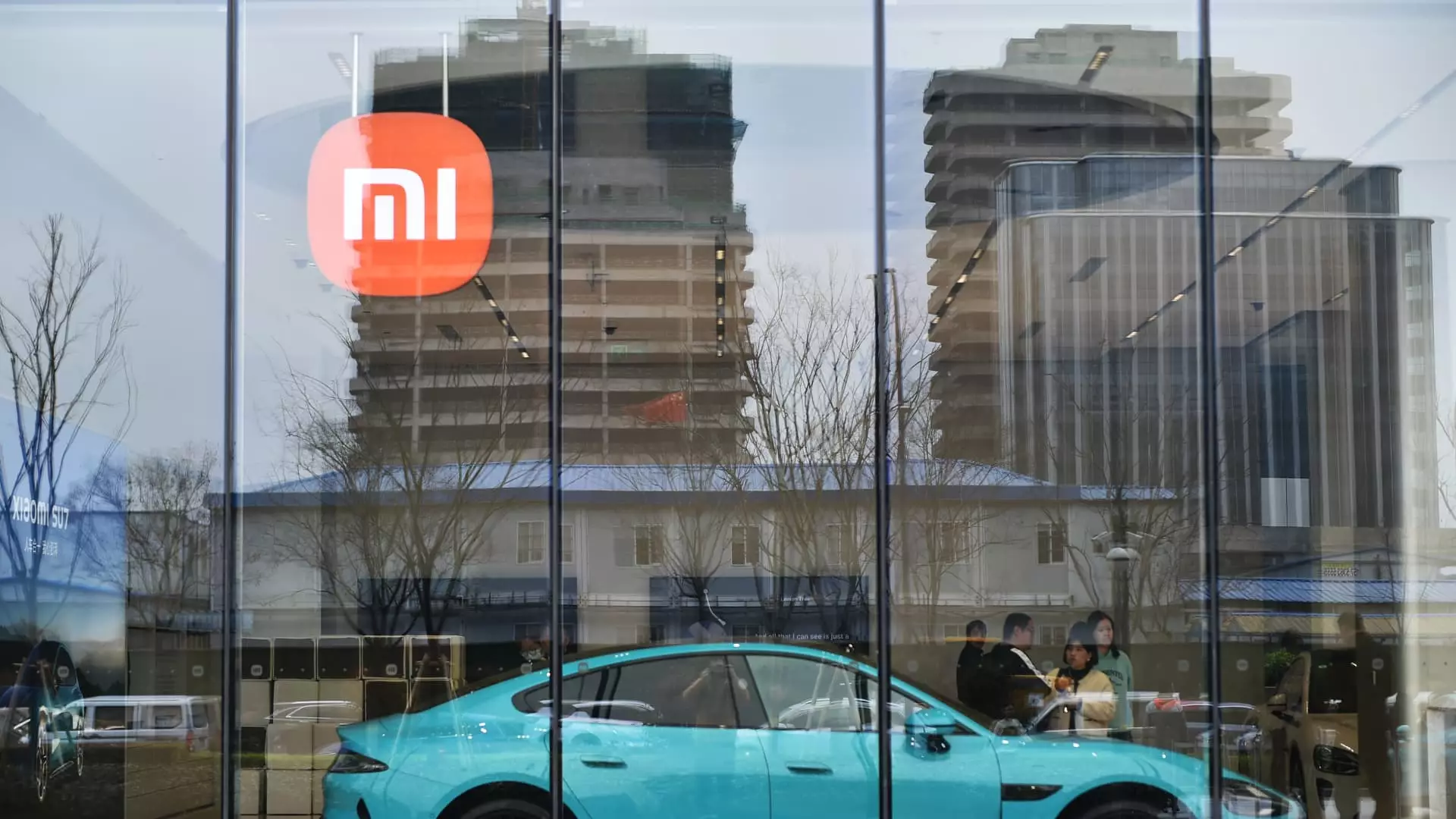The recent launch of Xiaomi’s SU7 electric car has caused quite a stir in China’s electric vehicle market. The company’s decision to price the SU7 $4,000 less than Tesla’s Model 3 has undoubtedly attracted a lot of attention. This move, coupled with the promise of a longer driving range, has contributed to Xiaomi’s stock surging by 15% when the Hong Kong market opened on Tuesday. It is evident that competition in the Chinese EV market is heating up, with more players entering the scene.
Despite the fierce competition and the buzz surrounding new electric car launches, the growth of new energy vehicles in China seems to be facing some challenges. While penetration of battery and hybrid-powered passenger cars has exceeded one third of new car sales in the country, there are signs that the growth may be slowing down. This slowdown is reflected in the delivery figures of companies like Li Auto, Nio, and Xpeng, who have all revised their first quarter estimates downwards. This trend suggests that the market may be reaching a saturation point, leading to increased competition among players.
In the midst of these developments, it is interesting to note the performance of market leaders and industry giants in the Chinese electric vehicle market. Companies like BYD continue to dominate the market, with impressive figures of 139,902 battery-powered passenger cars and 161,729 hybrid vehicles sold in March. Despite the challenges faced by other players, BYD’s total passenger car sales recorded a significant increase of nearly 14% compared to the previous year. This underscores the company’s strong position in the industry and its ability to navigate the competitive landscape.
The recent announcements of car purchase subsidies by Chinese EV startups Xpeng and Nio reflect the influence of government policies on the electric vehicle market. The subsidies, totaling 20,000 yuan and 10,000 yuan respectively, come in response to the Chinese government’s efforts to promote consumption through incentives such as trade-ins. These policy initiatives play a crucial role in shaping the dynamics of the EV market in China, influencing consumer behavior and market trends.
The electric vehicle market in China is experiencing a period of intense competition, with new players entering the scene and established companies facing challenges. The government’s policies and incentives continue to play a significant role in driving consumer demand and shaping the market landscape. As the industry evolves and matures, it will be interesting to see how different players adapt to changing market conditions and emerging trends in the Chinese electric vehicle market.

Leave a Reply